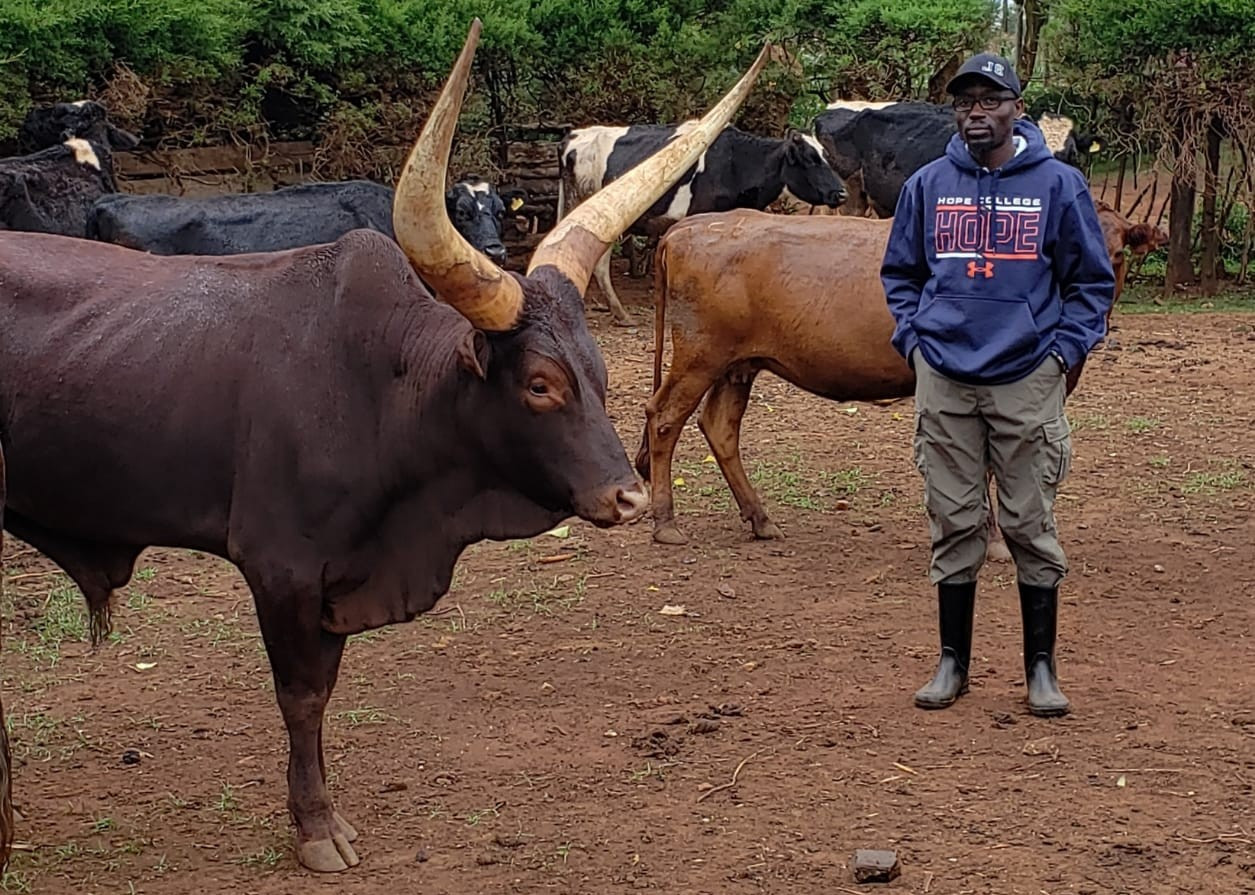By MY Correspondent
We farm in Malomonye village in Ndivisi location, Bungoma County with the help of our parents who oversee the general activities on the farm. We have also employed a farm manager who engages in day-to-day running of the ranch.
The farm is called JS Malomonye Ranch and currently hosts 40 animals consisting of bulls, steers and dairy cows. The number reduced after we sold nine beef steers in November 2019.
Despite living abroad, we have managed to know the daily happenings on the farm through the use of technology, especially WhatsApp. Myself I also visit the country three or four times a year, a journey that grants me opportunity to interact with my family and also check on the animals.
We have relevant WhatsApp groups for specific ranch related communication. My father gives us regular updates on what is needed and the farm manager also communicates with us using the same forum.
Through technology, we are alsoable to access the various farm records on breeding, births, vet visits and feeding among others. WhatsApp plays an important role in communicating key business items without having to wait or delay decision-making.
We feed our animals hay which we buy and stock and supplement with napier grass which we have in plenty. We also grow maize that we crush and mix in with the chopped napier grass.
Our farm is divided into paddocks, on which we graze the animals at different times allowing the grass to regenerate. We also buy maize stalks and sunflower from neighbours who have harvested, crush and feed the animals in the feedlots for fattening.
On any livestock ranch, feeds are usually the biggest expense but in our case, we have managed to keep the costs down because we grow most of the fodder ourselves.
Many Kenyans in the diaspora send money back home to their kin and sometimes it's not invested in intended purposes or worse still, it's squandered.
To avoid such scenario, one must first know who they are dealing with and be sure of what they want to invest in.
Growing up, we herded cows in the village, therefore, getting into the business was a little easy for me because I already had some knowledge.
We knew we cannot do 100 per cent dairy to avoid the numerous challenges, and that is the reason we also focused on beef.
As a family, we agreed in 2014 on the project, researched on it and began it in 2015 as a team of three brothers, one sister and our parents. We all contributed money and got the project going. Our parents have been great stewards of the farm. We provide the capital and they execute and manage the project.
In order to support them, we brought in a professional farm manager and that elevated the professionalism on the ranch. We communicate as a group and make decisions as a team.
There are challenges in the business, like diseases and high cost of feeds, but over time, one learns how to overcome them.
Good workers are very important for the success of such a project. Without the right people, you are wasting your time.
In fact, I will state that if you do not have workers that you can trust and verify, look at something else to do, not this kind of farming.
For feeds, have enough and grow them locally because relying on buying is really expensive. A recent dry spell taught us a lot, now we stock a lot of hay and buy from local farmers maize before using ours.
Some people ask me, is diaspora telephone farming worth it? That depends. Farming requires constant presence in my opinion. The only reason I am doing this is because my parents are literally on the ground and we have a reliable manager.
If we did not have them, we would not be involved in a project like this. You need trust and reliability. Sometimes that is hard to come by.
Click here to buy Jacob’s livestock or have chat with him
You want to be a Mkulima Young Member? Register here
Being a member enables you to sell and/or accessing contacts for buyers seeking products. Also soon you will get regional market trends and prices projection for various agricultural commodities.
Click here to buy Jacob’s livestock or have chat with him
You want to be a Mkulima Young Member? Register here
Being a member enables you to sell and/or accessing contacts for buyers seeking products. Also soon you will get regional market trends and prices projection for various agricultural commodities.

